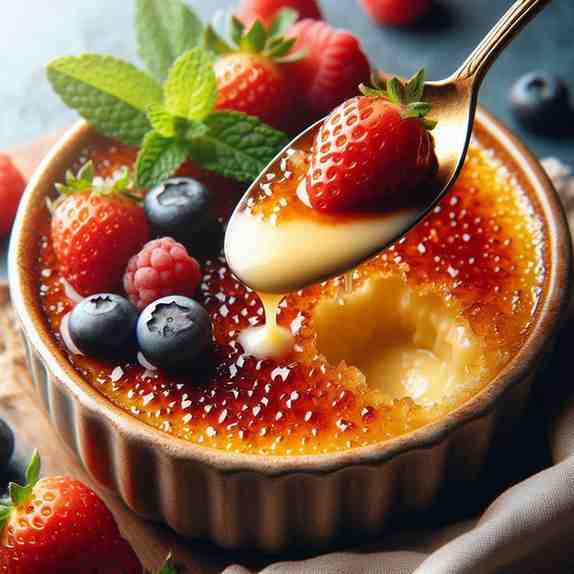Creme Brulee With Crunchy Caramel

Creme Brulee Recipe Creme Brulee with Crunchy Caramel is a symphony of contrasting textures. This culinary masterpiece melds the creaminess of custard with the crisp sweetness of a perfectly torched sugar crust. This dish promises to be the star of any event with its luscious simplicity and hint of artistic flair, creating a memory that […]
